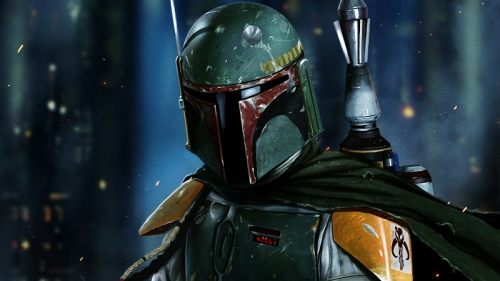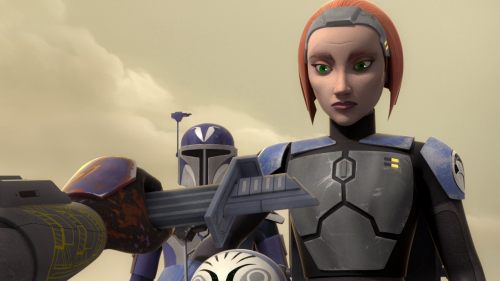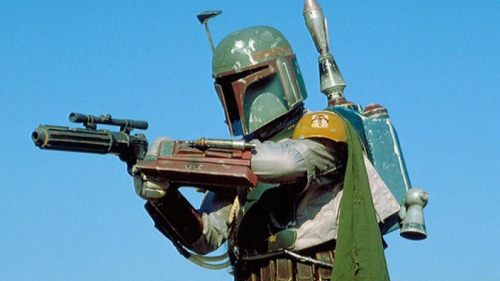THE LAST JEDI: Unlearning What We Have Learned
When Luke Skywalker unceremoniously tosses away his lightsaber at the start of Star Wars: The Last Jedi, you’re either with the movie, or the lightsaber. The Last Jedi is a movie about moving on - or more bluntly, “letting the past die." Thus, in order for Star Wars to move forward, we must, as Yoda once said, unlearn what we have learned.
The Last Jedi is the first film in an age to meaningfully expand this fictional universe, and the first to truly follow through on The Empire Strikes Back’s ethereal ideas around the Force. Far from retreading empty nostalgia, it opens up new horizons, twisting familiar situations to communicate something fresh and exciting. It’s the most mystical movie in the series so far, yet also absolutely about demystification - serving almost as a rebuttal to (in particular) The Force Awakens’ ideas about legends and storytelling.
But The Last Jedi is less a refutation of The Force Awakens’ specific mystery-boxes than it is a necessary adjustment in how we watch Star Wars movies. Two years ago, I wrote that Darth Vader's parental revelation and the Darth Sidious "mystery" had turned fans into backstory sleuths incapable of watching a story play out on its own terms. Predictably, that attitude ended up colouring or completely subsuming fan anticipation for The Last Jedi. Many were less interested in what would happen next than in what happened before - especially where it came to Rey's parentage and Snoke's backstory. Snoke’s “true identity” drove fans positively mad with speculation, despite it never having been presented as a mystery to begin with. The Last Jedi did not reveal any secret identity, for there was none to reveal, and went as far as killing Snoke off for good measure (which also handily robs Kylo Ren of an easy redemption). Turns out, Snoke’s only “true” identity was as yet another pointless link to the past - just like the wannabe-Vader mask he thought was so ridiculous.
More fundamentally, The Last Jedi is a rebuke to the Hero's Journey-centric storytelling that Star Wars helped to popularise and perpetuate back in the ‘70s.
Firstly, there’s the notion that heroes are destined for greatness. Luke Skywalker may be a nobody when we first meet him, but even by the end of A New Hope he’s endowed as being the son of a Jedi Knight. Subsequent films render him the offspring of a literal "chosen one" and an equally-literal queen. As a result, when Rey’s parentage was left a mystery in The Force Awakens, fans naturally assumed she was of “significant” descent. The Last Jedi puts paid to such ideas: she's a true nobody, in the way Luke never really was, sold off by nobody parents for quick cash.
The subtext, of course, is that it doesn't matter who Rey's parents are. In her cave vision in Ahch-To, she asks to see her parents, and observes two silhouettes merging into one - which itself resolves into her own reflection. The only figure that matters is Rey. It's almost the inverse implication of Luke's vision in Empire, which suggested he was doomed to repeat his father's dark path. Rey, on the other hand, only sees Rey. That she has achieved what she has despite her origins is an incredibly powerful statement; along with Finn’s escape from the First Order, it asserts that it is only our actions - not our backgrounds - that make us who we are. Putting people into positions of authority because they were born or “destined” to be there is what got the Jedi in trouble to start with.
Yes, The Last Jedi (and Luke Skywalker in it) finally addresses the tragic flaws of the Jedi Order: namely, their arrogant belief in their own legend. Just as the old Jedi Order allowed (and arguably even caused) Darths Sidious and Vader to rise to power, so too does Luke blame himself for Kylo Ren's turn to the Dark Side. Different perspectives exist around that, as illustrated in the film's disagreeing flashbacks (and echoed in the throne room sequence, in which three characters' clashing predictions all come true, from a certain point of view), but Luke's involvement in Ben Solo's past can't be denied. Luke was as blinded by his own legend as the Jedi were by theirs - and crucially, only opening his mind to change and learning enables him to achieve his final task.
Notably, the power in the film's master-student relationship does not lie with the master. The Last Jedi is smart about teaching and learning, depicting it as the two-way street that it is. Rey ends up teaching Luke as many lessons as he teaches her - not the least of which is one in humility: "we are what they grow beyond,” observes Yoda. Legends must move aside, implies the deceased Jedi, to enable new growth.
And what happens when heroism fails? Central to The Last Jedi is the notion that failure is - again, according to Yoda - “the greatest teacher.” And thus, Star Wars deconstructs its own myth of the harebrained, million-to-one scheme. Poe, Finn, and Rose's complicated plan is fun to watch executed, and that's precisely why its failure is so important. Poe's insubordination against Vice-Admiral Holdo is similarly approached with the audience’s viewpoint in mind. We're meant to distrust Holdo, a new character, and trust Poe, a familiar one, so Poe’s wild heroics can disappoint us later. That rug-pull is the best way to teach us this lesson. Sometimes you don’t land the one in a million shot. Sometimes the torpedoes only impact on the surface, and sometimes you suffer colossal losses, thanks to bad decisions or pure shitty luck, and you've got to own that failure and learn from it. Armchair strategists claim the failure of Poe’s plan means it shouldn’t have been in the film - but that’s precisely why it is there. Rebellions against superior forces take work and alliances and trust, not stupid heroics. It's not sexy, but it's how you get the job done.
In shrugging off the portent and prophecy of the past, The Last Jedi has done something else: created its own iconography. Star Wars Kid reference or not, the decision to close The Last Jedi not on a tableau of existing characters, but on a child looking up to the stars, is significant on multiple levels. It’s a simple, powerful distillation of one of the movie’s themes - that rebellion comes from the common folk, not just chosen heroes - as the child metaphorically beats his ploughshare into a sword, the moon's glint turning his broom into a lightsabre. Fan theories have already emerged as to the identity and plot significance of this kid, but such theories miss the entire point: that he’s a nobody, just another of the huddled masses yearning to breathe free. (And no, he's not coming back.)
Barring Force ghosts, cameos, or recasting, there will be no human Original Trilogy characters in Star Wars: Episode IX. This new set of characters - Rey, Finn, Poe, Kylo, Rose, precious snivelling Hux - is it. A new generation of characters demands a new generation of audiences - or at least a new generation of thinking. The Last Jedi joins a slew of other 2017 sequels - Logan, T2 Trainspotting, War for the Planet of the Apes - focused, in their own ways, on taking stock of one's deeds, moving beyond the past, and making way for who comes next.
General Leia’s final line, reassuring Rey that the Resistance has everything it needs, says it all. Their troops may be depleted, their fleet reduced to one beat-up Corellian freighter, but the spirit of the new Rebellion is alive in everyone. Unlike the First Order, whose power stems from military and economic might, and which spends the final battle literally dragging a symbol of its Death Star-obsessed past behind it, the Rebellion is all about love, heart, and belief. The natural world above the mechanical. Friendship above hatred. Facts above prophecy. Just as the Rebels leave the First Order in the dust, so too does The Last Jedi leave behind outdated ideas of what Star Wars can be.
It all comes back to that lightsaber toss. Ultimately, Star Wars is not about the fighting - the space planes and the laser swords and the ray guns - but about the characters. As such, it must move forward with character - with heart, with compassion, and with humanity.
"That's how we're going to win. Not fighting what we hate, saving what we love."



